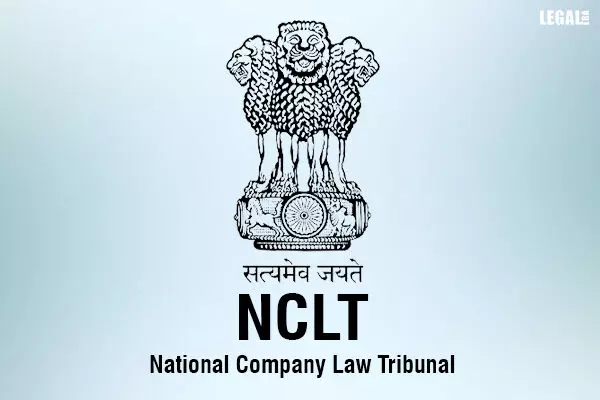- Home
- News
- Articles+
- Aerospace
- Artificial Intelligence
- Agriculture
- Alternate Dispute Resolution
- Arbitration & Mediation
- Banking and Finance
- Bankruptcy
- Book Review
- Bribery & Corruption
- Commercial Litigation
- Competition Law
- Conference Reports
- Consumer Products
- Contract
- Corporate Governance
- Corporate Law
- Covid-19
- Cryptocurrency
- Cybersecurity
- Data Protection
- Defence
- Digital Economy
- E-commerce
- Employment Law
- Energy and Natural Resources
- Entertainment and Sports Law
- Environmental Law
- Environmental, Social, and Governance
- Foreign Direct Investment
- Food and Beverage
- Gaming
- Health Care
- IBC Diaries
- In Focus
- Inclusion & Diversity
- Insurance Law
- Intellectual Property
- International Law
- IP & Tech Era
- Know the Law
- Labour Laws
- Law & Policy and Regulation
- Litigation
- Litigation Funding
- Manufacturing
- Mergers & Acquisitions
- NFTs
- Privacy
- Private Equity
- Project Finance
- Real Estate
- Risk and Compliance
- Student Corner
- Take On Board
- Tax
- Technology Media and Telecom
- Tributes
- Viewpoint
- Zoom In
- Law Firms
- In-House
- Rankings
- E-Magazine
- Legal Era TV
- Events
- Middle East
- Africa
- News
- Articles
- Aerospace
- Artificial Intelligence
- Agriculture
- Alternate Dispute Resolution
- Arbitration & Mediation
- Banking and Finance
- Bankruptcy
- Book Review
- Bribery & Corruption
- Commercial Litigation
- Competition Law
- Conference Reports
- Consumer Products
- Contract
- Corporate Governance
- Corporate Law
- Covid-19
- Cryptocurrency
- Cybersecurity
- Data Protection
- Defence
- Digital Economy
- E-commerce
- Employment Law
- Energy and Natural Resources
- Entertainment and Sports Law
- Environmental Law
- Environmental, Social, and Governance
- Foreign Direct Investment
- Food and Beverage
- Gaming
- Health Care
- IBC Diaries
- In Focus
- Inclusion & Diversity
- Insurance Law
- Intellectual Property
- International Law
- IP & Tech Era
- Know the Law
- Labour Laws
- Law & Policy and Regulation
- Litigation
- Litigation Funding
- Manufacturing
- Mergers & Acquisitions
- NFTs
- Privacy
- Private Equity
- Project Finance
- Real Estate
- Risk and Compliance
- Student Corner
- Take On Board
- Tax
- Technology Media and Telecom
- Tributes
- Viewpoint
- Zoom In
- Law Firms
- In-House
- Rankings
- E-Magazine
- Legal Era TV
- Events
- Middle East
- Africa
NCLT Delhi Sets Precedent: Amalgamation of Sole Proprietorship and Company Illegal

NCLT Delhi Sets Precedent: Amalgamation of Sole Proprietorship and Company Illegal
In a significant legal precedent, the National Company Law Tribunal (NCLT) Delhi Bench, led by Judicial Member Ashok Kumar Bhardwaj and Technical Member L.N. Gupta, rejected an application for merging a sole proprietorship firm with a company, declaring such amalgamations impermissible under current Indian law.
The legality of a distribution agreement between Kajaria Bathware Pvt. Ltd., a company under the Companies Act, 1956, and SVS Marketing, a sole proprietorship firm, was under scrutiny at the NCLT.
Shibu M, both the proprietor of SVS Marketing and a shareholder/member in M/s SVS Marketing Sanitaryware Pvt. Ltd., was prohibited from partially transferring the distribution agreement, potentially raising concerns about potential conflicts of interest or overlapping business interests.
In an attempt to pursue outstanding debts, the Proprietorship Firm executed an Amalgamation Agreement with the Applicant, a Private Limited Company. This agreement involved the assignment of the Proprietorship Firm's actionable claims to the Applicant, empowering them to act as debt collectors on the Proprietorship Firm's behalf.
Faced with payment delinquencies, the Respondent received a demand notice under Section 8 of the Insolvency and Bankruptcy Code, 2016 (IBC). Subsequently, an application under Section 9 led to the commencement of the Corporate Insolvency Resolution Process (CIRP).
The Tribunal grappled with a crucial legal question: whether an amalgamation between M/s SVS Marketing, a sole proprietorship firm, and M/s SVS Marketing Sanitaryware Pvt. Ltd, a company, is permissible under the law.
The Applicant countered by arguing that the agreement restricted the transfer of “obligations” but not the overall business or its actionable claims. They further emphasized that the shared identity of the promoter between both entities, coupled with the specific assignment of actionable claims, rendered the amalgamation legal under existing regulations.
The Respondent strongly opposed the claim of a valid amalgamation, emphasizing the illegality of the transfer between the Proprietorship and the Company. They firmly grounded their argument on the explicit clause within the Distributorship Agreement, which they asserted, prohibited any transfer or assignment without prior written consent from the relevant parties.
Underlining the legal definition of “company” in Section 2(20) of the Companies Act 2013, the NCLT stated that both entities involved in an amalgamation under Sections 230-232 must be registered companies. They emphasized that “company” solely refers to entities incorporated under the Act or previous company laws, excluding sole proprietorships.
Drawing a clear distinction between eligible entities for amalgamation, the NCLT interpreted Section 232 of the Companies Act 2013 with precision. They emphasized that the legal framework under this section caters exclusively to mergers and amalgamations involving two or more companies, excluding the possibility of amalgamation between a sole proprietorship firm and a company.
Taking into account the specific facts and circumstances of the case, the NCLT emphasised that neither the sole proprietorship firm nor its individual proprietor can be legally categorized as “companies” as defined under Section 2(20) of the Companies Act. This crucial interpretation establishes that such entities are ineligible for amalgamation under the provisions of Section 232.
Finding the attempted merger between a sole proprietorship and a company legally impossible under Section 232, the NCLT dismissed the application.



